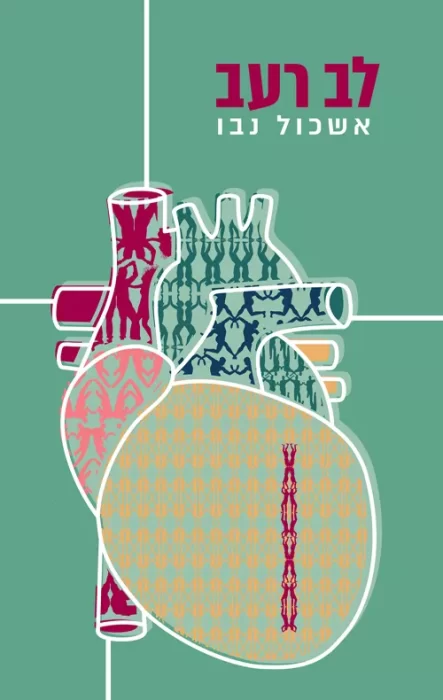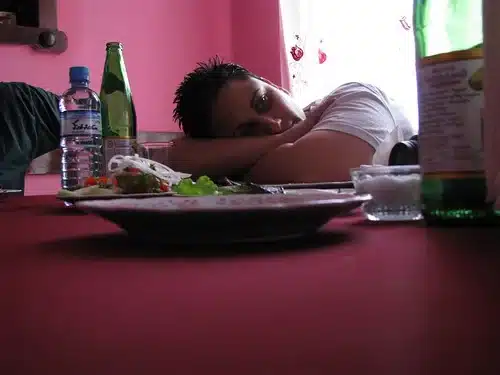For English review, please scroll down.
לב רעב הוא הספר השביעי שאני קוראת מהרשימה הארוכה של המועמדים לפרס ספיר. זה הוא ספר סיפורים קצרים מאת הסופר המוערך אשכול נבו.
קראתי מספר ספרים שפירסם ואת חלקם אהבתי מאוד, לדוגמא: שלוש קומות, גבר נכנס בפרדס, הראיון האחרון.
"לב רעב" מקבץ 20 סיפורים קצרים שעוסקים ביחסים בין בני זוג, בין הורים לילדים, בין חברים וגם נושאים שיש להם משמעות חברתית.
הסיפורים נוגעים ללב, מאירים זויות רגישות ביחסים ואפילו בסיפורים עם המשמעות החברתית ("אפרטהייד", "החומר של דנדן") יש משהו מאוד אנושי ונוגע ללב.
אהבתי מאוד את הסיפור "לב רעב", שהעניק לקובץ את שמו. בן נוסע עם אביו לפריז לצפות בהופעה של ברוס ספרינגסטין. זו כמעט ההזדמנות האחרונה של הבן לסוע עם אביו, שתמיד רצה לצפות בהופעה של ספרינגסטין. הסיפור הוא סיפתח חזק למקבץ הסיפורים שיבואו אחריו.
האמת שציפיתי שהם יתעלו לרמה שלו, אבל מטבע הדברים לא בכל הסיפורים הוא מצליח להגיע לסגירת המעגל כמו ב- "לב רעב".
עוד סיפור שאהבתי "החומר של דנדן", נוגע בכאן ועכשיו שלנו. פצוע קשה בפיגוע בחיפה, מצליח להחלים אבל לא להשתקם. הוא נותר נכה בצורה חמורה, וברגע אחד חייו וחלומותיו נופצו לרסיסים. הקיצבה שהוא מקבל מהמדינה, אינה מספיקה לקיומו והוא הופך להיות ספק הסמים של החבר'ה.
נבו חוזר לנושאים חברתיים – כלכליים גם בסיפור הקצר "לימונדה", שבו זוג שנקלע לקשיים כלכליים במהלך הסגרים של הקורונה, מחליט להצטרף לאונליפנס (או משהו בסיגנון הזה) ולצלם צילומי פורנו של האישה.
והוא ממשיך ומעמיק בנושאים חברתיים בסיפור "אפרטהייד" שבו חבר נוסע מישראל לדרום אפריקה, להופיע במועדון ג'ז ועל הדרך לבקר את מי שהיה חבר בלהקת הנגנים שלו. כשהוא פוגש את החבר, הוא מגלה שהוא מתגורר בטירה מאחורי חומה בצורה, ואישתו מארחת את אחיה של העוזרת האפריקנית שלהם. לא מדובר באירוח מרצון, אלא מחוסר ברירה כי האח נרדף. הזוג משכן את האח בחדר מזווה צר ולא נוח למרות שיש להם עשרה חדרים ריקים.
מתוך השיח שמתנהל סביב שולחן הארוחה, עולה הצביעות וההתנשאות. לכאורה ניסיון לסיוע לחלשים ונדכאים, בפועל מעשה שנועד לרומם את עצמם בעיניי עצמם.
הסיפור הארוך בקובץ "סימנים כחולים", שמתייחסים לשני ה- V הכחולים שמופיעים בוואטסאפ, הוא סיפור מורכב שמתאר יחסים בין שני חברים שגדלו יחד, על רקע האובדנות והלקות הנפשית של אחד מהם.
לפני מספר שנים, הופרטו שירותי בריאות הנפש לקהילה. המשפחות נאלצות לא אחת להתמודד עם בני משפחה אובדניים שסובלים מלקות נפשית ואין תמיד מסגרות או תמיכה במשפחות האלה. הבירוקרטיה שנדרשת לקבלת סיוע ללוקים בנפשם מורכבת ומאחר שקיימת סטיגמה על סוגי הלקות הנפשיים, המשפחות גם לא ממהרות לפנות לסיוע. גם הלקות לא תמיד נראית וקשה לשכנע שהיא בכלל קיימת.
הסיפור "סימנים כחולים" נוגע בכל אלה. מחד בפחד המתמיד, באין אונים ובחוסר הוודאות ומאידך בקושי המשפחתי.
כמו שאחרים כתבו, בחלק מהסיפורים חסר את העוקץ, את הקצה החד. בסיפורים שאהבתי, לא הפריע לי שאשכול נבו לא חותך בבשר החיי. נהפוך הוא, אני אוהבת את התכונה הזו שלו.
סה"כ ספר טוב מאוד והסיפורים בו ממולצים לקריאה (וגם להאזנה – הפעם עברית יצאו מגידרם עם מבצע שונה לכל סיפור והביצועים מעולים)
עוד ספרים שקראתי ונמצאים ברשימה הארוכה של פרס ספיר השנה:
"הבית הכחול" מאת דנה חפץ, סיפור משפחתי מצויין הן מבחינה תוכנית והן מבחינה קונספטואלית ועריכתית.
"אל תקרא לי אום כולתום" מאת יוכי שלח, ניסיון מעניין לכתוב בלשית ישראלית.
"נשארתי בשבילכם", מאת רוחמה אלבג, סיפור משפחתי טוב מאוד.
"ופתאום בוקר", מאת נעמה דעי, סיפור זוגיות מאתגרת.
"ההתחלה של כל הדברים", מאת יניב איצקוביץ'. סיפור מצויין שמקפל בתוכו אהבה, זיכרון ועדות.
"הילד של לגיון הזרים", מאת לאה איני. מחווה טובה מאוד לבן זוגה שנפטר.
לב רעב/ אשכול נבו
הוצאת כנרת זמורה דביר, 2023, 304 עמ'
דירוג SIVI –
איכות אודיו –

The seventh book I am reading from the long list of nominees for the Sapir Prize is a book of short stories by the esteemed author Eshkol Nevo.
I have read several of his books, including Three Floors, A Man Enters an Orchard, and The Last Interview, and I liked some of them.
“A Hungry Heart” is a collection of 20 short stories about relationships between spouses, parents and children, friends, and issues of social significance.
The stories are touching and illuminate sensitive aspects of relationships. Even in stories with social significance (“Apartheid,” “Danden’s Material,” etc.), there is something very human and touching.
The story “A Hungry Heart,” which inspired the collection's title, is a unique narrative. It follows a son's journey to Paris with his father, a die-hard Bruce Springsteen fan, to attend a Springsteen concert. This trip, which could be their last together, is a poignant exploration of their relationship. The story's distinct theme sets the tone for the rest of the collection.
I expected them to rise to his level, but naturally, not all stories end with him closing the circle like in “Hungry Heart.”
Another story I liked, “Dandan’s Material,” touches on our here-and-now. Seriously injured in a terrorist attack in Haifa, he manages to recover but not to rehabilitate. He is left severely disabled, and in one moment, his life and dreams are shattered to pieces. The stipend he receives from the state is insufficient for his existence, and he becomes the guy’s drug supplier.
Nevo also returns to social-economic issues in the short story “Lemonade,” in which a couple who ran into financial difficulties during the Corona lockdowns decide to join Unipens (or something along those lines) and film pornographic photos of the woman.
He continues to delve into social issues in the story “Apartheid,” in which a friend travels from Israel to South Africa to perform at a jazz club and, along the way, , someone who was a member of his band. When he meets the friend, he discovers that the friend lives in a castle behind a wall and that his wife is hosting the African maid's brother. This is not voluntary hosting; it is visits out of necessity because the brother is being persecuted. The couple houses the brother in a narrow and uncomfortable pantry room, even though they have ten empty rooms. The friend's shock at the brother's living conditions elicits empathy in readers.
The conversation around the dinner table reveals hypocrisy and arrogance. Ostensibly an attempt to help the weak and oppressed, it is an act designed to elevate themselves in their own eyes.
The long story in the “Blue Signs” file, which refers to the two blue Vs. that appear on WhatsApp, is a complex story that describes the relationship between two friends who grew up together against the backdrop of the suicide and mental illness of one of them.
Several years ago, mental health services were privatized for the community. Families are often forced to deal with suicidal family members who have mental illness, and there are not always frameworks or support for these families. The bureaucracy required to receive assistance for the mentally ill is complex. Since there is a stigma around the types of mental illnesses, families are also in no hurry to seek help. Breaking this stigma is crucial, as it hinders families from seeking the support they need. The illness isn't always visible, and convincing others that it exists isn't easy, but families can feel empowered to do so with the proper support.
The story “Blue Signs” touches on all of these: constant fear, helplessness, uncertainty, and the family’s hardship.
As others have written, some stories lack the sting, the sharp edge. In the stories I liked, I didn’t mind that Eshkol Nevo didn’t cut into the flesh of the living. On the contrary, I like this quality of his.
Overall, it is a perfect book, and the stories in it are recommended for reading (and also for listening – this time, Hebrew went out of their way with a different performance for each story, and the performances are excellent)
Other books I have read that are on the long list for this year's Sapir Prize:
"The Blue House" by Dana Hefetz is an excellent family story in terms of plot, conceptually, and editorially.
"Don't Call Me Umm Kulthum" by Yochi Shelah is an interesting attempt at writing an Israeli detective story.
"I Stayed for You" by Ruhama Elbag is an outstanding family story.
"And Suddenly a Morning," by Naama Dei, is a story of a challenging relationship.
"The Beginning of All Things" by Yaniv Itzkovich is an excellent story about love, memory, and testimony.
“The Child of the Foreign Legion,” by Leah Ini, is a perfect tribute to her deceased partner.
לגלות עוד מהאתר Sivi's Books
Subscribe to get the latest posts sent to your email.

